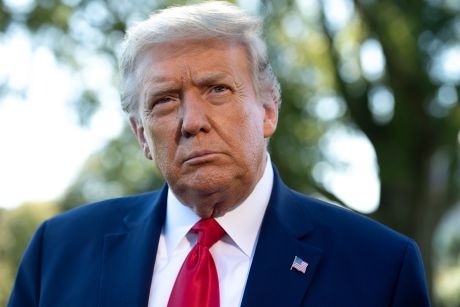Former President Donald Trump has announced his intention to turn himself in on Thursday, alluding to his arrest in connection with a controversial Georgia indictment. This announcement, made via his Truth Social platform, has ignited a firestorm of speculation and discussion regarding the motivations behind this unprecedented move.
Negotiations culminate in surrender plans at Fulton County jail
In a significant turn of events, negotiations between Donald Trump’s legal team and the Fulton County district attorney’s office have solidified a plan for the former president to surrender himself at the Fulton County jail in Georgia. These deliberations have centered around Trump’s consent bond and the conditions of his release. The agreed-upon date of surrender, set for Thursday, marks a crucial development in this high-stakes legal battle.
The Indictment and Its Implications
A sprawling 98-page indictment revealed just last week has placed Donald Trump and 18 other defendants in the eye of a legal storm. With a staggering 41 criminal counts levied against them, these charges stem from alleged efforts to overturn the results of the 2020 election within Georgia’s borders. This indictment has not only sparked controversy but has also cast a shadow on Trump’s political future, as he contends with the possibility of an uphill legal battle.
Surrender, Bonds, and Trial Timeline
As the Thursday surrender date approaches, local authorities are bracing for a heightened security situation. The local sheriff’s office has announced plans for a “hard lockdown” in the vicinity of the Rice Street Jail, where Trump is slated to surrender. Amidst mounting tensions, this move underscores the gravity of the situation.
Bond agreement stipulates conditions for Trump’s release
Donald Trump’s legal team and Fulton County District Attorney Fani Willis have reached an agreement regarding his bond and release conditions. Trump will be required to post a $200,000 bond and adhere to a strict prohibition on sending threatening messages via social media. These conditions underscore the delicate balance between legal proceedings and concerns over potential influence on public sentiment.
Trial dates and conflicting interests
The prosecution has proposed a trial commencement date of March 4, seeking swift legal action in light of the gravity of the charges. However, Trump’s legal team has countered with a request for a 2026 trial, potentially raising questions about the timeline and nature of this legal battle. As these contrasting interests converge, the judicial process is poised to be a battleground of legal strategies and tactical maneuvers.
With the impending surrender of Donald Trump on Thursday, the nation finds itself at the epicenter of a legal maelstrom. As the former president navigates the intricate web of indictments, negotiations, and trial preparations, the consequences of this decision ripple across political, legal, and social spheres. The stage is set for a trial of unprecedented significance, and as the date looms closer, the world waits with anticipation to witness the next chapter in this extraordinary saga.
















